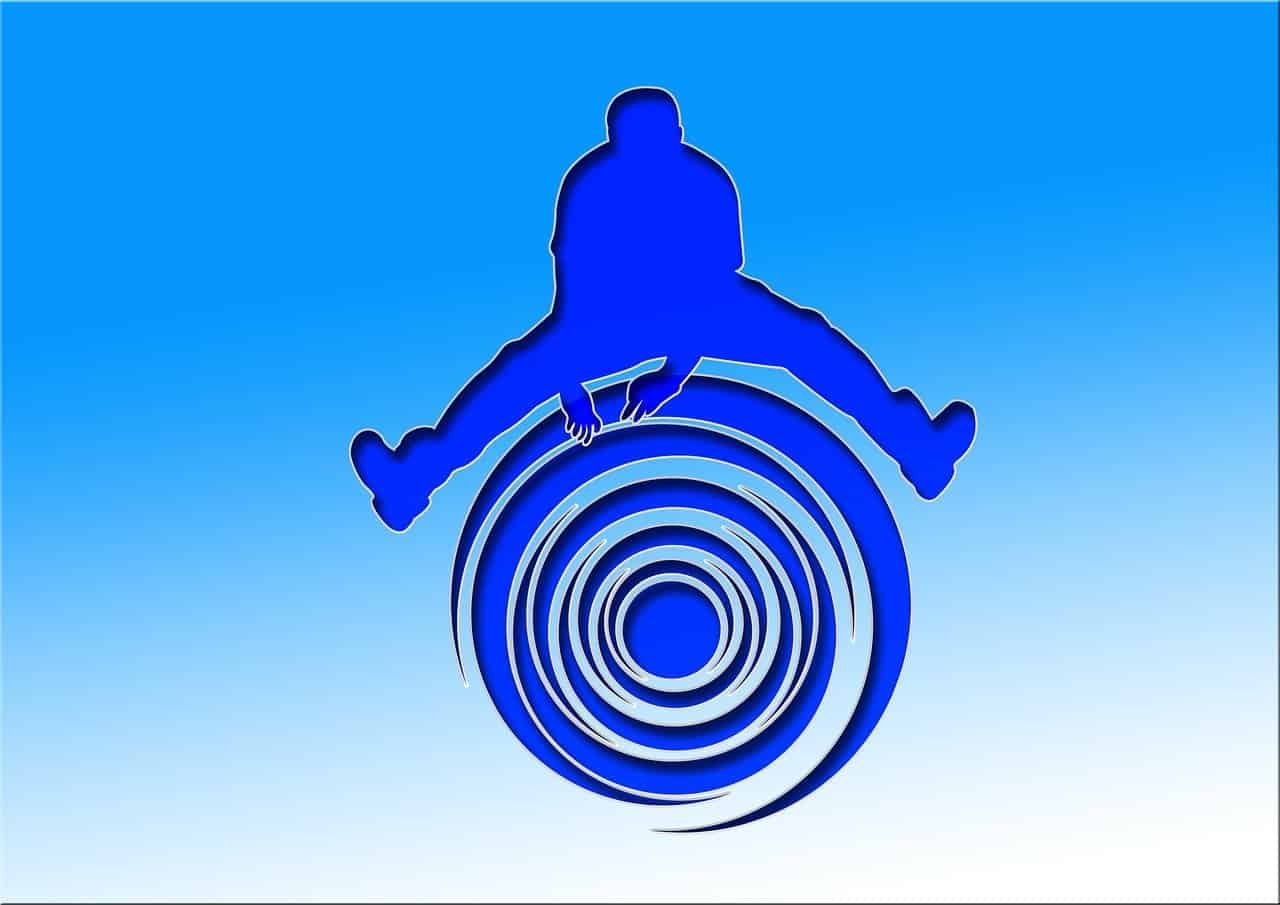Coaching Psychology
|
Getting your Trinity Audio player ready...
|
You’ve likely heard of the power of coaching in sports or business, but have you considered the impact of coaching psychology?
This field combines the principles of psychology with the practice of coaching to help individuals and organizations achieve their goals and improve overall well-being.
Coaching psychology delves into understanding human behavior, motivation, and goal-setting techniques, all aimed at enhancing personal and professional development.
Whether it’s leadership development, organizational change, or personal wellness, coaching psychology offers valuable insights and strategies.
With its focus on ethical considerations and positive growth, coaching psychology can be a powerful tool for personal and professional success.
Key Takeaways
- Coaching psychology combines principles of psychology with coaching to enhance personal and professional development.
- Psychological coaching integrates psychology into the coaching process to understand human behavior and motivation.
- Understanding human behavior and motivation is crucial in coaching psychology to tailor interventions to clients’ needs.
- Coaching psychology can be applied in leadership development to enhance self-awareness and interpersonal skills.
The Intersection of Psychology and Coaching
In this section, you’ll explore the intersection of psychology and coaching, examining how these two fields converge to enhance personal and professional development. Psychological coaching integrates the principles of psychology into the coaching process, focusing on enhancing individuals’ well-being and performance. This approach emphasizes understanding human behavior, motivation, and mindset to facilitate effective coaching outcomes. By incorporating psychological theories and techniques, coaches can better comprehend their clients’ needs and challenges, leading to more tailored and impactful interventions.
Coaching effectiveness is significantly heightened when informed by psychological principles. Understanding the complex interplay of emotions, cognition, and behavior allows coaches to design interventions that resonate with their clients on a deeper level. This results in more profound self-discovery, increased self-awareness, and sustainable behavior change. Moreover, psychological coaching equips coaches with tools to address limiting beliefs, overcome resistance to change, and foster a positive mindset in their clients.
Ultimately, the amalgamation of psychology and coaching creates a potent framework for personal and professional growth, enabling individuals to unlock their full potential and achieve meaningful transformation.
Understanding Human Behavior and Motivation
As you explore the intricacies of coaching psychology, it’s important to understand the interplay between human behavior and motivation.
By examining the dynamics of intrinsic and extrinsic motivation, you can gain insight into how individuals are driven to achieve their goals.
Additionally, considering the impact of coaching on behavior and motivation can provide valuable strategies for helping individuals reach their full potential.
Behavior and Motivation Interplay
Understand how behavior and motivation interact to achieve your coaching goals.
Behavior analysis helps you identify patterns and triggers that influence actions and reactions. By understanding these patterns, you can tailor your coaching strategies to effectively address specific behaviors.
Additionally, incorporating motivational interviewing techniques can help you uncover the underlying motivations that drive behavior. This approach allows you to align your coaching methods with the individual’s intrinsic motivations, increasing the likelihood of sustainable change.
Recognizing the interplay between behavior and motivation enables you to create targeted interventions that resonate with your clients, fostering a deeper level of engagement and commitment to the coaching process.
Intrinsic Vs. Extrinsic Motivation
To effectively address specific behaviors, you must differentiate between intrinsic and extrinsic motivations and understand how they impact individual actions and reactions.
Intrinsic motivation stems from internal desires and drives, such as personal growth, curiosity, or a sense of accomplishment. On the other hand, extrinsic motivation originates from external factors like rewards, recognition, or punishment.
Understanding the interplay between these two forms of motivation is crucial in coaching psychology. While intrinsic motivation often leads to sustained engagement and genuine passion for a task, extrinsic motivation can provide initial impetus or reinforcement.
However, excessive reliance on extrinsic motivation may undermine intrinsic drive and diminish long-term commitment.
As a coach, recognizing and balancing the influence of both intrinsic and extrinsic motivators can help you effectively guide individuals toward achieving their goals and fostering sustainable behavioral change.
Impact of Coaching
You can enhance your coaching effectiveness by understanding the impact of human behavior and motivation. By delving into the intricacies of human behavior and motivation, you can significantly improve your ability to guide and support your clients.
Here are key ways to leverage this understanding:
-
Recognize patterns: Identifying recurring behaviors and motivations in your clients can help tailor your coaching approach to their specific needs.
-
Adapt communication: Understanding human behavior and motivation allows you to adjust your communication style to resonate with your clients more effectively.
-
Foster self-awareness: By comprehending the impact of behavior and motivation, you can guide clients in developing a deeper understanding of themselves.
-
Encourage intrinsic motivation: Insight into human behavior enables you to nurture intrinsic motivation within your clients, driving sustainable progress.
-
Client progress tracking: Understanding how human behavior and motivation intersect allows for more accurate and insightful tracking of client progress.
Techniques for Goal Setting and Achievement
By focusing on identifying and prioritizing your goals, you can effectively utilize techniques for goal setting and achievement in coaching psychology. Goal setting is a crucial aspect of self-improvement, and coaching psychology provides various techniques to help individuals achieve their goals. Here are some effective goal-setting techniques commonly used in coaching psychology:
| Techniques for Goal Setting and Achievement | Description |
|---|---|
| SMART Goals | Specific, Measurable, Achievable, Relevant, Time-Bound goals help in creating clear and achievable objectives. |
| Visualization | Mental imagery of achieving one’s goals can increase motivation and focus, leading to better goal attainment. |
| Action Planning | Breaking down goals into smaller, manageable tasks with deadlines helps in tracking progress and staying on course. |
| Accountability | Having someone to be accountable to can provide support and motivation to work towards and achieve set goals. |
| Feedback and Adaptation | Regular feedback and adapting goals based on progress and changing circumstances are essential for successful goal achievement. |
These techniques, when applied effectively, can significantly enhance goal setting and achievement in coaching psychology, leading to improved self-improvement and personal growth.
Application in Leadership Development
Now it’s time to explore how coaching psychology can be applied in leadership development.
You’ll discover how coaching can help leaders grow psychologically and develop effective strategies for personal and professional growth.
This discussion will provide valuable insights into how coaching can be a powerful tool for leadership development.
Coaching for Leaders
Applying coaching psychology in leadership development involves fostering self-awareness and enhancing interpersonal skills through targeted feedback and goal-setting.
When coaching leaders, it’s essential to focus on specific areas to maximize leadership effectiveness and executive performance. Here are key areas to consider:
-
Emotional Intelligence: Developing emotional intelligence is crucial for effective leadership.
-
Communication Skills: Enhancing communication skills aids in building strong relationships and leading teams effectively.
-
Conflict Resolution: Equipping leaders with conflict resolution techniques fosters a harmonious work environment.
-
Decision-Making Abilities: Strengthening decision-making abilities empowers leaders to make sound judgments.
-
Adaptability: Developing adaptability helps leaders navigate complex and dynamic work environments effectively.
Psychological Growth Strategies
To enhance your leadership development, incorporating psychological growth strategies is essential for fostering self-awareness and maximizing your effectiveness as a leader. Personal development is crucial for leaders to continuously improve their skills and adapt to the ever-changing demands of their roles. By implementing psychological growth strategies, you can enhance your self-awareness, emotional intelligence, and resilience, which are vital for effective leadership. These strategies also contribute to performance improvement by helping you develop better decision-making skills, build stronger relationships with your team, and manage stress more effectively. Here’s a table summarizing key psychological growth strategies for leadership development:
| Psychological Growth Strategies | Benefits |
|---|---|
| Self-reflection | Enhanced self-awareness and decision-making |
| Emotional intelligence | Improved relationships and team communication |
| Resilience | Better stress management and adaptability |
| Continuous learning | Enhanced skills and knowledge acquisition |
| Mindfulness | Improved focus and cognitive abilities |
Utilizing Coaching Psychology in Organizational Change
When implementing organizational change, using coaching psychology can effectively support employees in adapting to new processes and roles. By integrating coaching psychology into organizational change, you can create a supportive environment that fosters psychological growth and leadership development.
Here are five ways coaching psychology can be utilized in organizational change:
-
Enhancing Communication: By utilizing coaching psychology, you can improve communication channels within the organization, ensuring that employees feel heard and understood during times of change.
-
Building Resilience: Coaching psychology techniques can help employees develop resilience, enabling them to navigate the challenges and uncertainties that come with organizational change.
-
Promoting Empowerment: Through coaching psychology, you can empower employees to take ownership of their roles within the changing organization, fostering a sense of autonomy and control.
-
Facilitating Adaptability: Coaching psychology can assist employees in developing the adaptability needed to embrace new processes and initiatives, leading to smoother transitions during organizational change.
-
Supporting Skill Development: By integrating coaching psychology, you can provide targeted support for skill development, helping employees acquire the competencies necessary to thrive in their evolving roles.
Enhancing Personal Wellness Through Coaching
To enhance your personal wellness through coaching, prioritize setting clear goals and actively engaging in self-reflection.
Personal development is a key aspect of enhancing wellness. Through coaching, you can work on developing a deeper understanding of yourself, your values, and your aspirations. This self-awareness can guide you in setting meaningful goals that align with your personal values and long-term vision.
Additionally, stress management is a crucial component of personal wellness. Coaching can provide you with tools and strategies to effectively manage stress, build resilience, and maintain a healthy work-life balance. By working with a coach, you can explore techniques to cope with stress, such as mindfulness practices, time management skills, and boundary setting.
Furthermore, coaching can empower you to cultivate a positive mindset and adopt healthy habits that contribute to your overall well-being. With the support of a coach, you can navigate challenges, overcome obstacles, and progress towards a more fulfilling and balanced life.
Ethical Considerations in Coaching Psychology
Ensure that you adhere to ethical guidelines when practicing coaching psychology. When dealing with the complexities of human behavior and emotions, it’s crucial to maintain high ethical standards to protect both yourself and your clients. Here are some key considerations to keep in mind:
-
Confidentiality: Always respect the privacy of your clients and ensure that their personal information is kept confidential. Avoid discussing client cases with others unless it’s for professional consultation or supervision.
-
Informed Consent: Clearly explain the coaching process, including its limitations and potential risks, to your clients. Obtain their informed consent before initiating any coaching relationship.
-
Conflict of Interest: Be transparent about any potential conflicts of interest that may arise, such as having a personal relationship with a client. It’s important to manage and disclose such conflicts to maintain professional integrity.
-
Boundaries: Establish clear professional boundaries and avoid dual relationships that may compromise the coaching relationship. This includes refraining from any form of exploitation or manipulation.
-
Ethical Dilemmas: Be prepared to navigate ethical dilemmas that may arise during coaching sessions. Seek supervision or consultation when facing challenging ethical decisions.
Maintaining ethical standards and being mindful of professional boundaries is essential to fostering a safe and effective coaching environment.
Conclusion
So, as you can see, coaching psychology is a powerful tool for personal and professional development. It’s like a guiding light, illuminating the path to success and fulfillment.
With a deep understanding of human behavior and motivation, effective goal-setting techniques, and a focus on ethical practice, coaching psychology can truly transform lives.
Embrace this intersection of psychology and coaching, and watch as it opens doors to growth and achievement in both yourself and others.






